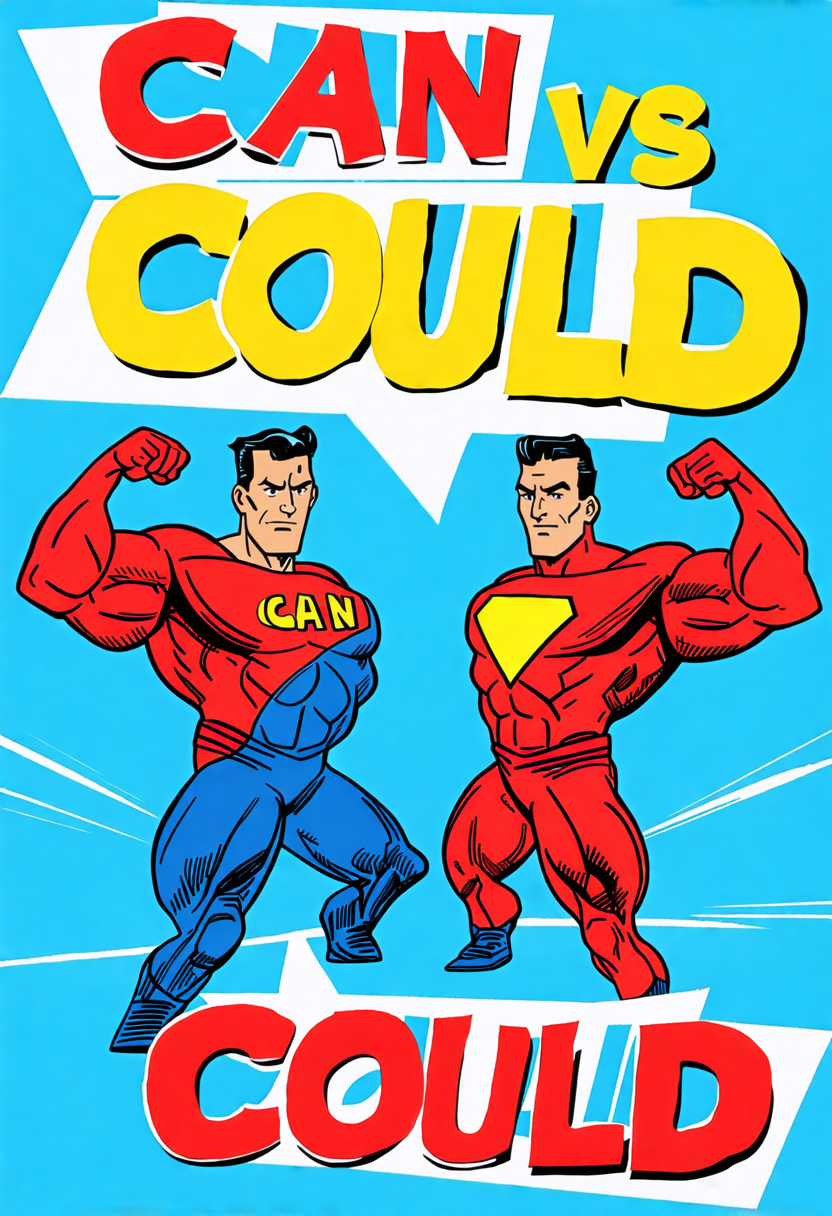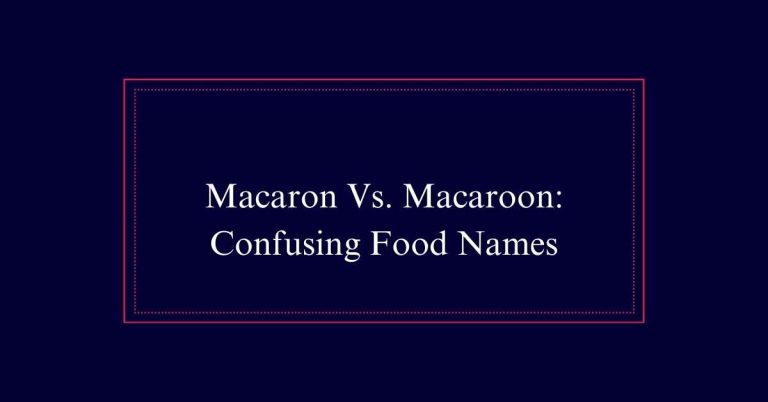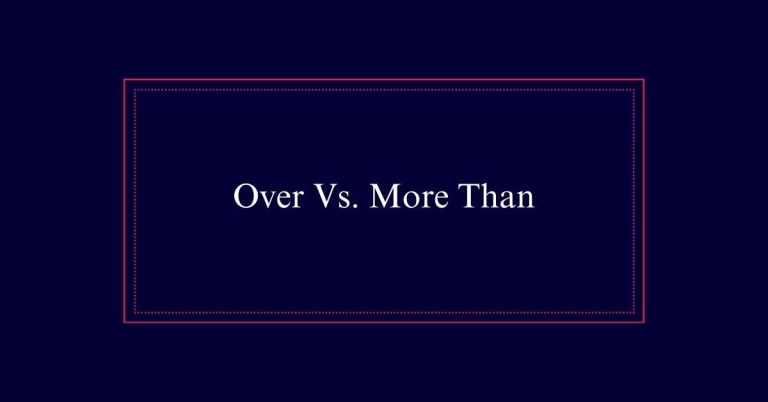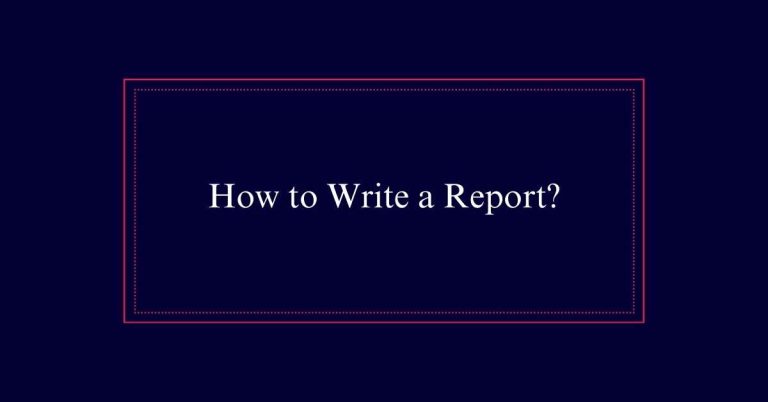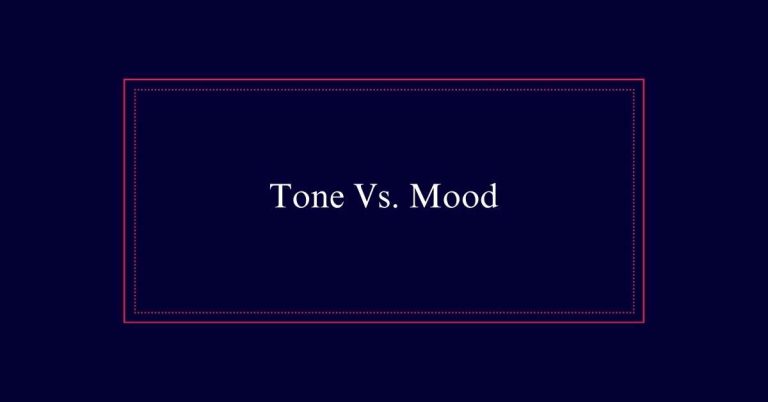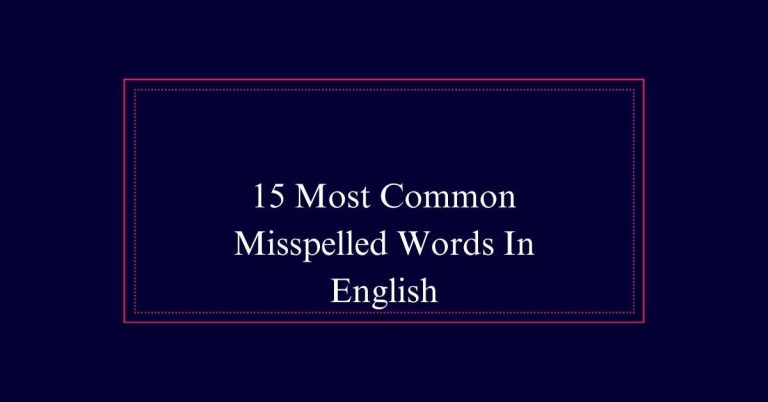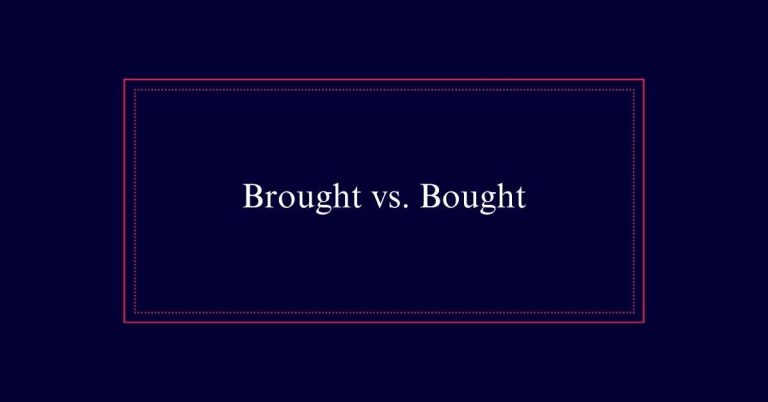Can Vs. Could
Understanding the difference between ‘can’ and ‘could’ is essential for clear communication. ‘Can’ expresses current abilities or possibilities and indicates a higher likelihood for future events. It is also used for informal permission requests. Conversely, ‘could’ refers to past abilities, uncertain possibilities, and more formal or polite requests. It introduces a sense of uncertainty when speaking about future events.
Understanding ‘Can’
‘Can’ is primarily used to express ability or possibility in the present tense. It is a versatile word that indicates someone’s current capability. For example, ‘She can swim very well.’
Additionally, ‘can’ is used to describe likely future events, such as, ‘We can meet tomorrow.’ It also serves as an informal way to ask for permission, like in the question, ‘Can I borrow your book?’
In terms of probability, ‘can’ suggests a higher likelihood of something happening. It conveys confidence and assurance about the possibility or ability mentioned.
Understanding ‘Could’
‘Could’ is utilized to express abilities or possibilities, often reflecting past contexts or uncertain outcomes. When referring to past abilities, ‘could’ indicates what someone was able to do at a previous time. For example, “She could swim when she was a child.”
‘Could’ also introduces possibilities, especially when the likelihood is uncertain. It suggests a lower probability compared to ‘can’. For instance, “We could go to the park if it doesn’t rain.”
Additionally, ‘could’ is used in polite requests or formal settings, such as “Could you pass the salt?” Understanding ‘could’ helps in expressing nuanced meanings about past abilities or uncertain possibilities in a clear and respectful manner.
Present Tense With ‘Can’
In the present tense, ‘can’ is used to denote someone’s current ability to perform an action. It signifies that a person has the capability to do something right now. This term is also used to indicate present possibilities or opportunities.
Here are three ways to use ‘can’ in the present tense:
- Expressing Ability: ‘I can swim across the lake.’
- Asking Permission: ‘Can I leave early today?’
- Describing Possibility: ‘You can find the book in the library.’
Past Tense With ‘Could’
While ‘can’ is used to express present abilities, ‘could’ is the term we use when referring to abilities someone had in the past.
For example, ‘Mario could have attended any college but chose UConn.’ This indicates that Mario had multiple options in the past.
‘Could’ is also used to describe past possibilities that did not happen. For instance, ‘We could have taken a different route.’ It reflects on an alternative action that was available but not chosen.
Additionally, ‘could’ can be used to make polite requests, as in ‘Could you arrange for someone to carry my bag upstairs?’ This usage makes the request sound more courteous.
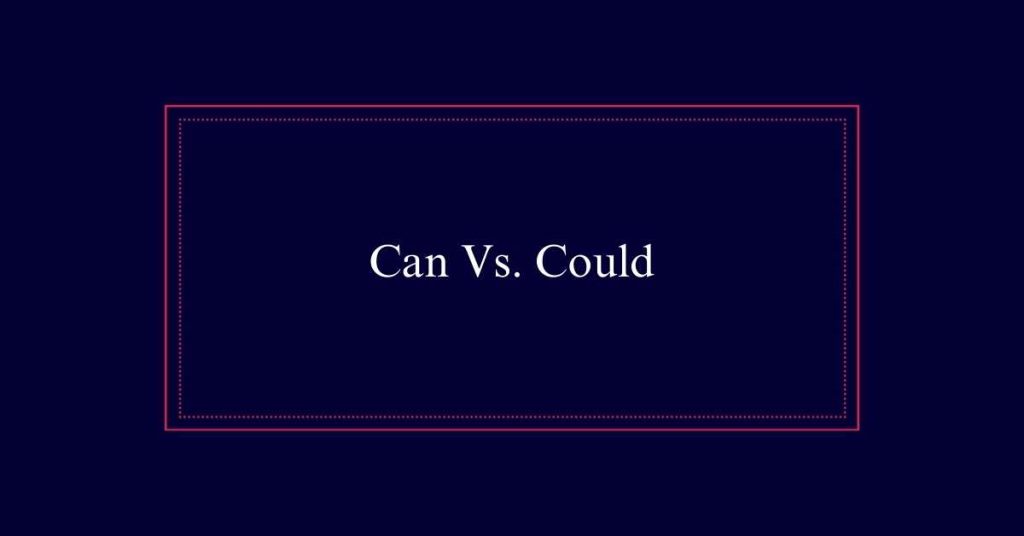
Future Likelihood: ‘Can’ Vs. ‘Could’
When considering future events, ‘can’ and ‘could’ help express different degrees of likelihood.
‘Can’ indicates a higher probability and is used for events that are more likely to happen. For instance, ‘We can meet at 5 PM.’ This suggests the meeting is quite likely.
On the other hand, ‘could’ reflects a lower probability, introducing uncertainty. For example, ‘We could meet at 5 PM,’ implies it is possible but not certain.
Here are three points to illustrate:
- High Probability: ‘We can achieve our goal.’
- Moderate Probability: ‘We could achieve our goal if conditions are right.’
- Low Probability: ‘We could potentially achieve our goal, though it’s uncertain.’
Expressing Probability
Expressing probability with ‘can’ and ‘could’ helps convey different levels of certainty. When you use ‘can,’ it suggests a higher likelihood that something will occur. For example, ‘It can rain tomorrow,’ implies a strong chance of rain.
In contrast, ‘could’ indicates a lower probability. Saying, ‘It could rain tomorrow,’ suggests that rain is one of several possibilities but not highly certain. This subtle difference helps in effectively communicating how likely or unlikely an event is.
Choosing between ‘can’ and ‘could’ allows the speaker to nuance their message, making it clear how confident they are about the outcome.
Describing Abilities
Understanding how ‘can’ and ‘could’ express probability lays the groundwork for using these words to describe abilities. ‘Can’ indicates a present ability or a high probability of future events. ‘Could’ refers to past abilities or suggests lower probability possibilities.
Here are three key points to remember:
- Present Ability: Use ‘can’ to describe what someone is able to do now. Example: ‘She can swim very well.’
- Past Ability: Use ‘could’ to describe abilities in the past. Example: ‘He could run fast when he was younger.’
- Future Possibilities: Use ‘could’ to discuss potential abilities or events that are less certain. Example: ‘We could learn French if we practice.’
Asking Permission
Asking for permission can be done using both ‘can’ and ‘could’, depending on the formality required. ‘Can’ is more informal and often used in casual conversations. For example, you might say, ‘Can I borrow your pen?’ This is direct and straightforward.
On the other hand, ‘could’ is more polite and formal, suitable for professional or unfamiliar settings. An example would be, ‘Could I take a day off next week?’ Using ‘could’ adds a layer of respect and softness to the request.
Both forms are correct, but choosing between them depends on the context and the level of formality you wish to convey. Understanding this distinction ensures effective and appropriate communication.
‘Can’ in Action
Having explored how ‘can’ and ‘could’ differ in asking permission, let’s now focus on how ‘can’ is used in various contexts.
The word ‘can’ is versatile and applicable in numerous scenarios. Here are three key uses:
- Expressing Ability: Use ‘can’ to describe someone’s current ability. For example, ‘She can swim very fast.’
- Indicating Possibility: Employ ‘can’ to signal a likely future event. For instance, ‘We can meet tomorrow.’
- Asking Permission Informally: ‘Can’ functions well in casual settings to seek permission. For example, ‘Can I borrow your pen?’
‘Could’ in Action
In various contexts, ‘could’ serves as a powerful tool to convey past abilities and possibilities. For example, ‘Mario could have attended any college but chose UConn,’ highlights a past capability.
‘Could’ also expresses potential outcomes, as in, ‘I could win the Chicago Marathon with enough training,’ emphasizing a future possibility.
Additionally, ‘could’ is often used to ask for permission politely, such as, ‘Could you arrange for someone to carry my bag upstairs?’ This shows its formal nature.
Lastly, ‘could’ indicates lower probability or uncertainty, as in, ‘We could potentially outrun those wolves.’ Understanding the nuances of ‘could’ helps in effectively communicating past abilities, formal requests, and uncertain possibilities.
